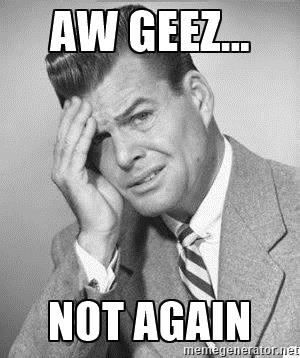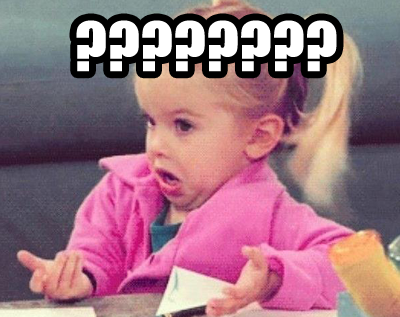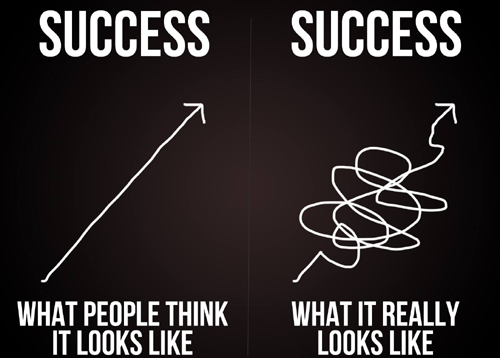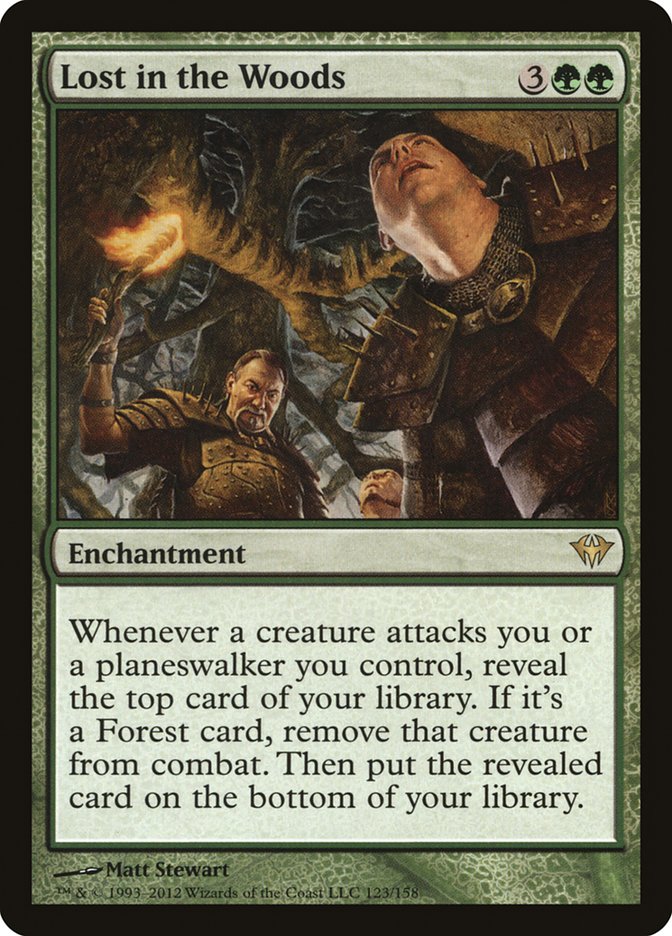It’s late Sunday afternoon.
Another end to another long Magic tournament; another end to another long
Magic weekend.
Despite a rough round one loss and a poorly played game three in round
five, you were able to rally back and finish 6-2 in the Modern Classic. Not
great, but at least a top 16 and $150 in store credit will make up for
another late collapse on day one of an Open.
After you hand in your slip, you make your way to the feature match area to
watch one of your teammates play a match against one of your friends in the
semi-finals of the Open. Your team has been crushing it lately and many of
your friends have been having quite the year so far. You are, of course,
happy for them, but small pangs of jealousy linger just beneath the
surface.
These sorts of negative thoughts have been far too frequent lately, despite
your heavy focus on having a positive attitude.
They announce over the loudspeaker that players from the Modern Classic are
to report to the main stage to get their prizes. You make your way over to
see the standings, scan down the list, and… 17th place on tiebreakers.

Unfortunately, it’s just the latest in a long line of frustrations for
2017.
It feels like every event you play in you get a good run going and then
either lose your last few rounds to not make day two or fall off a cliff on
day two.
Your opponents either always have it, or always draw it when they need to.
When you make mistakes, you get punished to the maximum every time.
When your opponent makes mistakes, they are either irrelevant to the game
or your opponent just draws out of them.
When standings go up, you’re always in 17th or 33rd place.
Everything just feels like it’s always ready to go wrong and it feels like
you’ve stopping playing Magic: the Gathering and started playing a new
game:

It’s similar to Magic: the Gathering, but instead of the person who built
their deck better and played better winning, you always
lose!
The excitement lies in finding out what new way you are going to lose in,
as well as spending money traveling to events with no chance to win any
money at all, and no chance to have fun because you are so preoccupied with
losing!
Are we having fun yet!?!

Sound Familiar?
In case it wasn’t obvious, this has been my 2017 so far. This is not my
first slump and it certainly won’t be my last. Every Magic player has gone
through slumps before, with many of the same symptoms from our little intro
story. Just like our intro story, the slump often will compound itself
until it reaches a point where you feel like you will never win again.
The problem, of course, is escaping this negative feedback loop.
The reason that slumps exist is because they feed into themselves. Once you
have the idea in your head that you are in some sort of slump, you begin to
create a self-fulfilling prophecy. When you feel like you are going to
lose, you will often find a way to do so, be it consciously or
subconsciously. Focusing is difficult, tilting happens very quickly, and it
can affect your play in very damaging ways.
A player mired in a slump that is having a tough time winning will often
not play their games normally.
Some will become very fearful and begin to play scared. Because they are
approaching the game with a negative attitude, they will give their
opponent credit for “always having it,” play around cards that aren’t
there, and take a much too passive approach to their games.
Some will become completely reckless, keeping one land hands on the play or
going for risky combat tricks because “why the hell not; I’m probably going
to lose anyway.” They won’t be looking for the proper context clues in the
game to decide their plays, instead just going for it at every possible
chance to speed up the process of their inevitable demise.
The result of all this negativity and poor play is of course more match losses, which leads a player to get even
further mired into their slump.
Magic is already a difficult enough game, and if you are fighting yourself
while trying to play it you are not going to succeed!
Breaking The Slump
So how does one get out of a slump?
…

Damned if I know, I’ve been stuck in one all year.
…
Thanks for reading, see everyone next week!
…
…
That’s the real problem with slumps. Even if you know how to escape them,
actually doing so is the hard part.
1. Change Your Perception of Success!
Magic is a difficult and fickle game.
A single draw step or missed land drop can be the difference between a
medium cash finish and a Pro Tour championship. You can play your best and
lose, and you can play poorly and win. Variance is one of the most exciting
aspects of Magic and the reason we play the game. If you wanted something a
little more consistent, go play chess!
As such, results are often misleading.
It’s very possible for a world class player to walk into a small FNM and go
1-2 drop. There are a ton of great players in every big Magic event and
many of them do poorly! This is often for a variety of reasons, but many
times it’s a simple numbers game. If there are thirty great players in a
big event, they can’t all make the Top 8.
As such, viewing your final standing in an event as the only measurement of
your success is foolish. What’s much more important is how you felt you played in the event, and the overall process of yourself
getting better as a Magic player.
Do you feel you played well?
Did you learn new things?
Do you feel like you are a little better at Magic than you were before the
event?
These are the questions that can help you determine if you’ve had a
successful tournament, regardless of your final place in the standings. It
helps to think of Magic not as a series of single tournaments or events,
but rather as one humongous tournament that lasts your entire life. Your
goal as a Magic player is to improve yourself constantly, not to be
emotionally at the whim of your last handful of matches.
When you take this sort of big picture approach, it’s much easier to see
the forest for the trees.
2. Look at the Great Players Who Did Awful!
Piggybacking off of our last point, next time you are at a big event and
unhappy with your performance, take a walk around the room. See which
players are playing in the Standard Classic on Sunday, or side drafting, or
just hanging out playing Catchphrase. You’ll likely see many top players
that you consider to be much better than you slogging away at 2-2 in the
Classic or cobbling a deck together in a side draft.
Remember, if there’s thirty great players in a tournament, about five of
them are likely to crash and burn for various reasons. Bad matchups, bad
draws, poor play, poor preparation… the list goes on and on. Seeing and
understanding that even very good players have bad days can make your own
bad days much easier to handle.
SCG Tour master Tom Ross has had three byes all year from
being Player of the Year last year and has failed to convert anything more
than a few top 32s. Fellow Team MGG member Frank Skarren is
a two time Limited GP Champion and failed to make day two of GP Richmond or
qualify for the sealed RPTQ. Brad Nelson won the last SCG Tour Open and GP
back to back, and then failed to cash either day at #SCGCHAR playing the
exact decks he won both events with.
I’m not calling anyone out here (lord knows it’s hard to trash talk when
you can’t even win a match yourself), but it’s a comfort to see excellent
players fail sometimes because it helps you realize that everybody loses.
3. Remember When You Succeeded!
This is a fairly common tactic for players in slumps in sports.
You can bet if Aaron Judge goes into a slump later this year, the hitting
coach is going to take him into his office and show him a few video clips
just like this one.

I am very fortunate to have had a long and fairly successful Magic career
so far with a good amount of finishes that I am proud of, but high level
success is not necessary for this step. Success can mean many different
things to many different people and is completely relative to how far you
have gotten in the game. Maybe you’ve won a tournament. Maybe it was a PTQ
Top 8, or even just a big match against a name-brand player that you won.
It could also have been a deck you worked on that did well, a draft
strategy you helped to craft, or a sneaky sideboard plan you thought up.
Whatever point it was in your own personal Magic career that you felt
successful, bring yourself back to that time and remember that is was you that achieved it. That was an accomplishment that you
earned, and while it doesn’t mean you are entitled to more accomplishments,
it does mean that you are capable of doing it again.
4. Write It Out and Study Up!
Writing is often cathartic.
You may be tempted to complain to your friends or tell endless bad beat
stories, but it’s far more productive and far less self-serving to do a
personal inventory on yourself and how you have been doing in Magic
recently. With no audience but yourself feel free to let loose, both as a
method of venting and then, more importantly, as a method of
self-reflection.
Again, our goal is always to learn, improve, and grow, and this sort of
self-reflection can be a wonderful tool to help meet these ends. When you
go back and read what you’ve written you can do so with a clear mind and
look for areas in your game that need improvement. Things that you may have
attributed to bad luck may have actually been more under your control than
you thought, and you may find holes in your game that you can put your
energy towards fixing.
There’s no shame in taking a break, and a break is a great time for
learning.
Read articles, ask questions, get coaching, talk to other players,
reflect, learn, and grow. Remember, our goal in Magic is to grow as a
player and always be getting better, and that doesn’t mean just jamming
endless drafts on Magic Online.
5. Lose the Idea that You Will Keep Losing!
You are not psychic.
You have no idea when things are going to turn around.
As such, you really have just one goal:
Stay positive and focus on playing well.
All you can ever control is you, both how you play and how you handle the
things around you. There is no such thing as a predisposition to losing,
nor is there such thing as “bad luck” or “running bad.” These are just
concepts created to make people feel better about themselves when they are
losing.
Focus on the things you can control. Hone your preparation, self-reflect on
your mistakes, play the best you can, and take everything in stride.

Failure is just part of the game.
Overcoming losses, tough times, and slumps is what makes you a better
player in the end. Don’t look at a slump as a burden, but rather as a
challenge to learn from and overcome. Stay positive, focus on what you can
control, and remember that the only way out is through.




